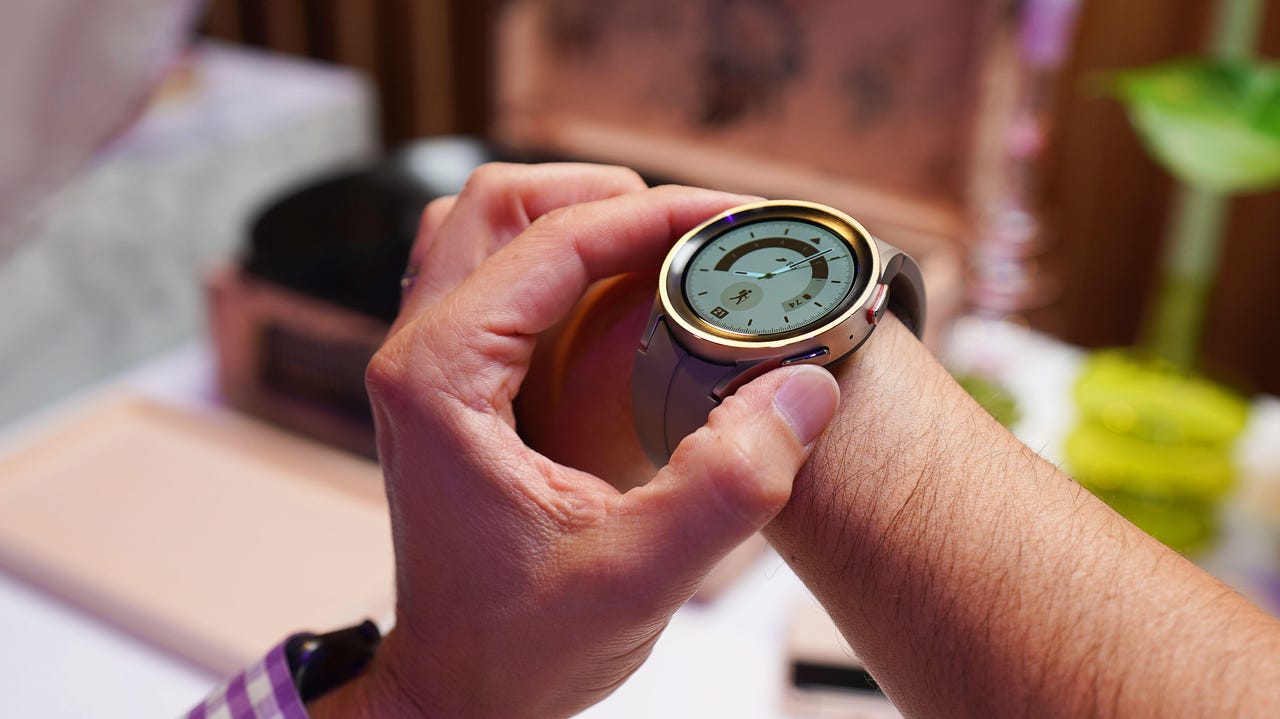Samsung announces a new heart health tracking feature for Galaxy Watch users

Samsung Galaxy Watch users will be getting a deeper look at their health thanks to a new feature set to roll out soon.
The tech giant announced today that its Irregular Heart Rhythm Notification (IHRN) feature, which received FDA clearance just last month, will be available for One UI 5 Watch users later this summer. It will be expanded to previous editions over the coming months.
Also: The best Android smartwatches: Does anything beat Samsung's sensors?
In conjunction with the Health Monitor app's Electrocardiogram monitoring, Samsung says the watch's irregular heartbeat feature (which runs continuously in the background once enabled) will analyze and detect unusual heart rhythms that suggest possible atrial fibrillation.
When detected, the wearer will receive a notification indicating that their heartbeat is abnormal and they should take an ECG test for further analysis — a feature the Galaxy Watch also offers.
Why is that so important? Atrial fibrillation is regarded as an early sign of a major heart condition. According to the CDC, heart disease is the leading cause of death in adults in the United States. And since AFib symptoms are generally silent, most people would never be aware of a problem.
Samsung says the IHRN feature has also been approved by the Korean Ministry of Food and Drug Safety and will be introduced in about a dozen other markets in addition to the US — including Argentina, Azerbaijan, Costa Rica, Dominican Republic, Ecuador, Georgia, Guatemala, Hong Kong, Indonesia, Korea, Panama, and the UAE.
Also: Why this sleep-tracking baby sock was my new-parent dream gadget
One UI 5 Watch will also provide Galaxy Watch wearers with three new sleep-related features, plus a personalized heart rate zone which analyzes physical capability and sets optimal workout levels.
The announcement comes in the middle of a smart watch health arms race of sorts, with Google announcing new AFib detection for Fitbit devices earlier this year (including the Fitbit app on the Pixel Watch), and Apple announcing AFib history and tracking last summer.

